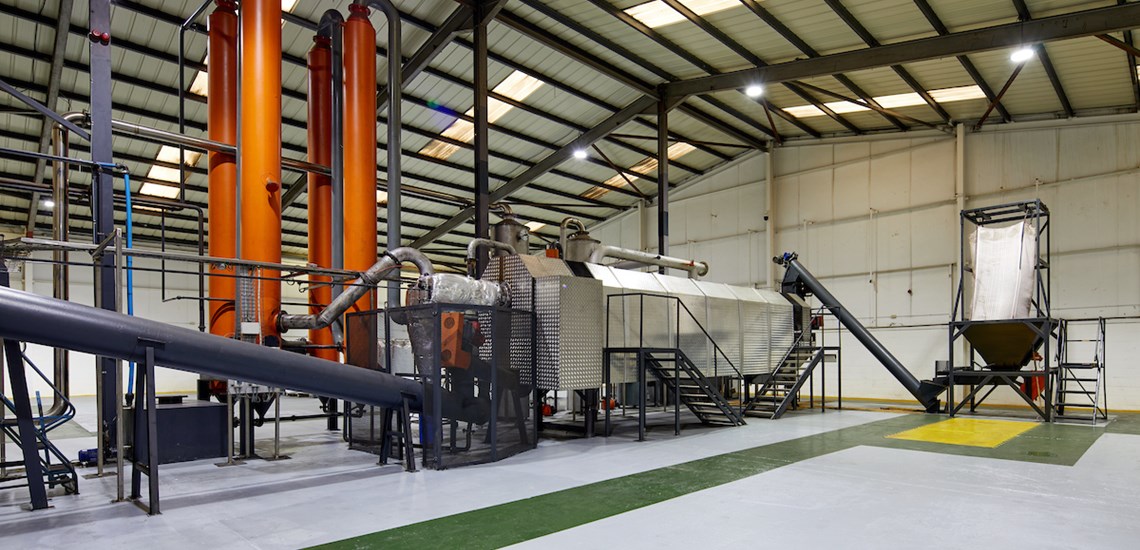UK’S only continuous pyrolysis plant offers wealth of opportunities to rubber manufacturers
Carlton Forest and IRR Offer an Effective Production Waste Solution
The very nature of tyre and rubber manufacturing results in waste rubber and this by-product of the manufacturing process is often an untapped commodity. Repurposed, it could deliver energy savings and business opportunities to manufacturers in the UK and across the globe.
IRR Waste 2 Energy, that has the technology fully commissioned and in operation at its Worksop headquarters, has seen it deliver tangible results in terms of energy generation and the production of by-products such as pyrolysis oil and pyrolysis black, which can be further refined to produce high grade engine oil and rCB (Recovered Carbon Black)
“ELTs, and any rubber that is left over as a result of the rubber manufacturing process, is one of the toughest materials to recycle, and poses a real problem to anyone in the industry as environment, waste, recycling and associated directives begin to become more common place in discussions and business strategies,” said Graham White, Group Commercial Director, Carlton Forest Group Holdings. “Our pyrolysis systems currently process one tonne of ELTs each hour and from that delivers a high-grade pyrolysis oil which, when put through our associated power generation system, produces 2 MW of electricity and 5 MW of recoverable heat. It will provide rubber manufacturers with the opportunity to not only dispose of their waste rubber (or any polymers) responsibly, but to also integrate with business plans to achieve sustainability targets due to its ability to generate energy, useful by-product consumables and support day to day business operations through heating and chilling applications.”
The continuous pyrolysis technology can be installed and commissioned for any business. All that is required is a separate space to house the plant, and the technology can be specified to the individual needs in terms of capacity and capabilities.
“Hugely ambitious targets have been set by our government and we believe it lies with businesses to explore the opportunities to utilise recycling as power generation. It can assist with achieving sustainability goals of their business and minimise the environmental impact, wherever possible, of their business operations,” said Graham. “Generating energy whilst using hard to recycle waste materials such as end-of-life tyres in the UK, can only deliver a positive impact and we look forward to an ongoing programme of education across the tyre industry.”




















